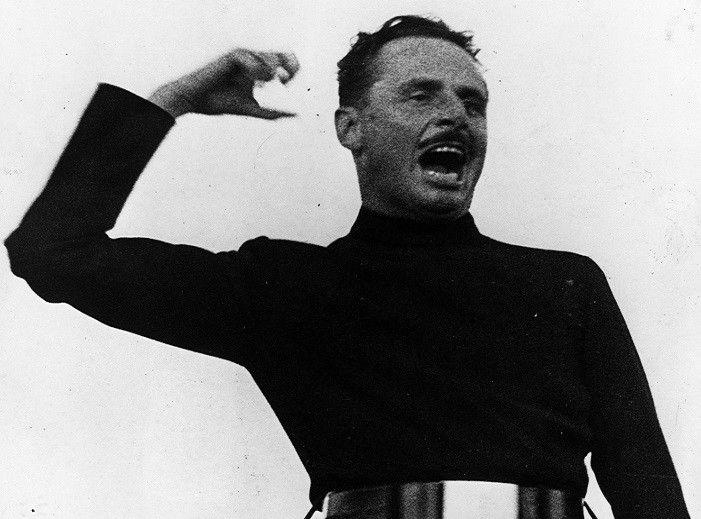BNP Poll Wipeout Marked By 'Funeral for Fascism' in Cable Street

A funeral hearse pulled by feather-crested horses and mounted with brightly coloured ballooons marked the poll routing of BNP by taking a route along Cable Street in London's East End.
Members of diversity group British Future played musical instruments including a banjo and trumpet at the front of the cortege in an event loaded with significance for opponents of fascism.
It took place following election disaster for BNP leader Nick Griffin, which saw the far-right party sink without trace in local and EU polls. Griffin was booted out of Brussels by voters who stripped him of his North West Euro seat.
But with far-right parties having secured blockbuster results in other EU countries, it could be questioned whether fascism is really dead - or is on the rise.
British Future's director Sunder Katwala told IBTimes UK the latest election results showed fascism had failed in Britain.
He said: "As a national political force at an electoral level, the death of the BNP means we have seen the end of them as having a chance of success. There's been a significant shift and the BNP have lost their central argument which was: who is and who is not British.

"They had this argument about Caribbean and then Asian people who came to live in this country. There was an argument that these communities would never be part of us, but the majority of this country stood up and said they are fully British. Young people have not fallen for the BNP's type of politics."
Griffin lost his seat to Labour in the EU elections and vowed afterwards: "We will be back." IBTimes UK contacted the BNP about the boast of British Future - but no-one was available for comment.
Author David Rosenberg has written about the grassroots fight against Mosley and his British Union of Fascists party during the 1930s.
He said the Battle of Cable Street in 1936 on its own did not bring down Mosley and his crazed ideology of a strong-man leader seizing power in Britain, like Hitler had done in Germany.
"Fascism would not have been defeated without two other things, he said. "In 1934, there was a big confrontation at a Mosley rally at Olympia with a lot of violence, which was a propaganda victory for the anti-fascists because it meant a lot of Mosley's important supporters backed off him. Then later that year in September, he held a rally in Hyde Park with 5,000 fascists, which was disrupted by 100,000 anti-fascists.
"In a way, the Battle of Cable Street happened as a bit of a second coming of Mosley's movement. CS is the iconic moment in the fight against fascism: It was a people's victory."
© Copyright IBTimes 2025. All rights reserved.




















